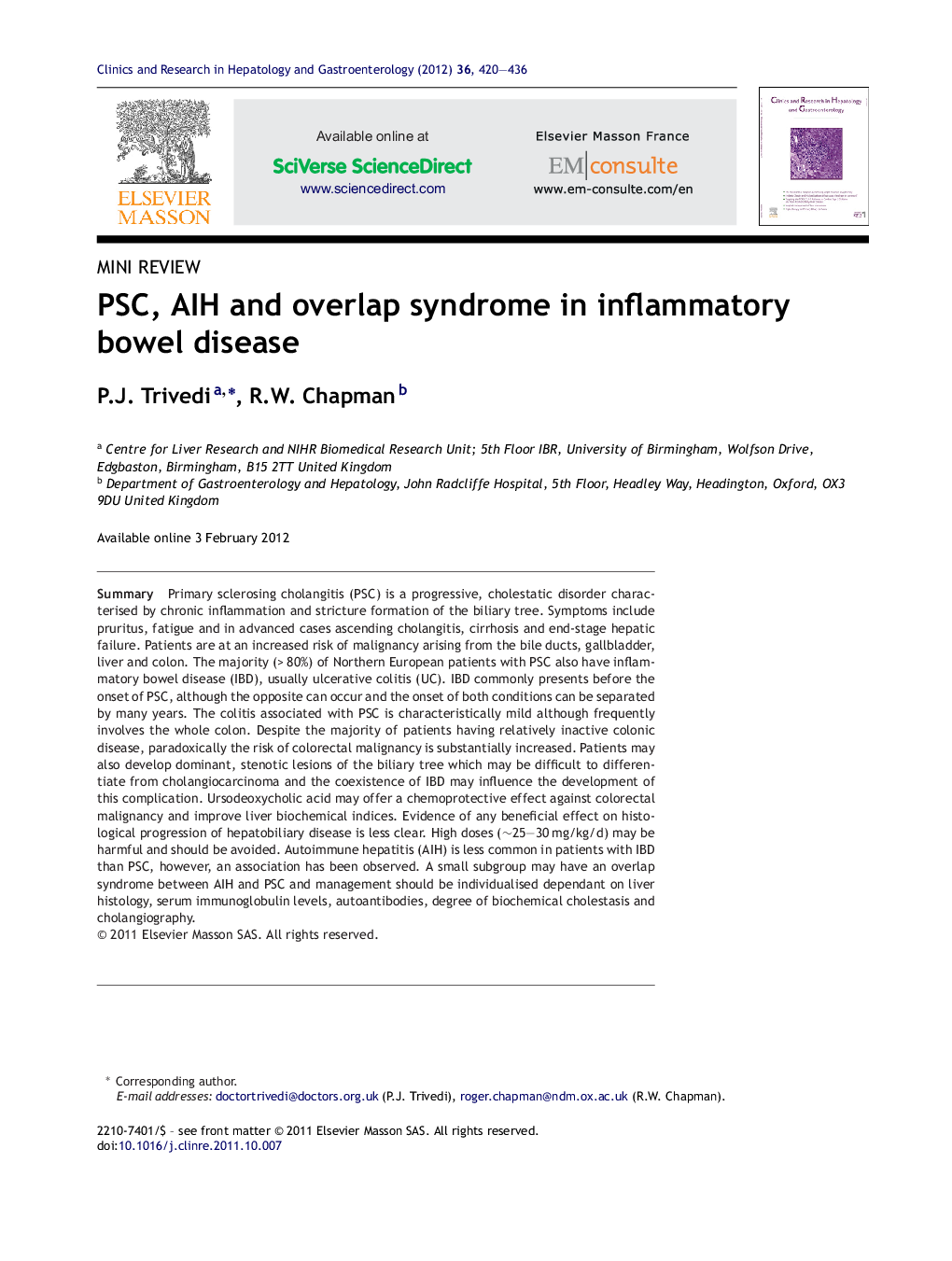| Article ID | Journal | Published Year | Pages | File Type |
|---|---|---|---|---|
| 3286669 | Clinics and Research in Hepatology and Gastroenterology | 2012 | 17 Pages |
SummaryPrimary sclerosing cholangitis (PSC) is a progressive, cholestatic disorder characterised by chronic inflammation and stricture formation of the biliary tree. Symptoms include pruritus, fatigue and in advanced cases ascending cholangitis, cirrhosis and end-stage hepatic failure. Patients are at an increased risk of malignancy arising from the bile ducts, gallbladder, liver and colon. The majority (> 80%) of Northern European patients with PSC also have inflammatory bowel disease (IBD), usually ulcerative colitis (UC). IBD commonly presents before the onset of PSC, although the opposite can occur and the onset of both conditions can be separated by many years. The colitis associated with PSC is characteristically mild although frequently involves the whole colon. Despite the majority of patients having relatively inactive colonic disease, paradoxically the risk of colorectal malignancy is substantially increased. Patients may also develop dominant, stenotic lesions of the biliary tree which may be difficult to differentiate from cholangiocarcinoma and the coexistence of IBD may influence the development of this complication. Ursodeoxycholic acid may offer a chemoprotective effect against colorectal malignancy and improve liver biochemical indices. Evidence of any beneficial effect on histological progression of hepatobiliary disease is less clear. High doses (∼25–30 mg/kg/d) may be harmful and should be avoided. Autoimmune hepatitis (AIH) is less common in patients with IBD than PSC, however, an association has been observed. A small subgroup may have an overlap syndrome between AIH and PSC and management should be individualised dependant on liver histology, serum immunoglobulin levels, autoantibodies, degree of biochemical cholestasis and cholangiography.
